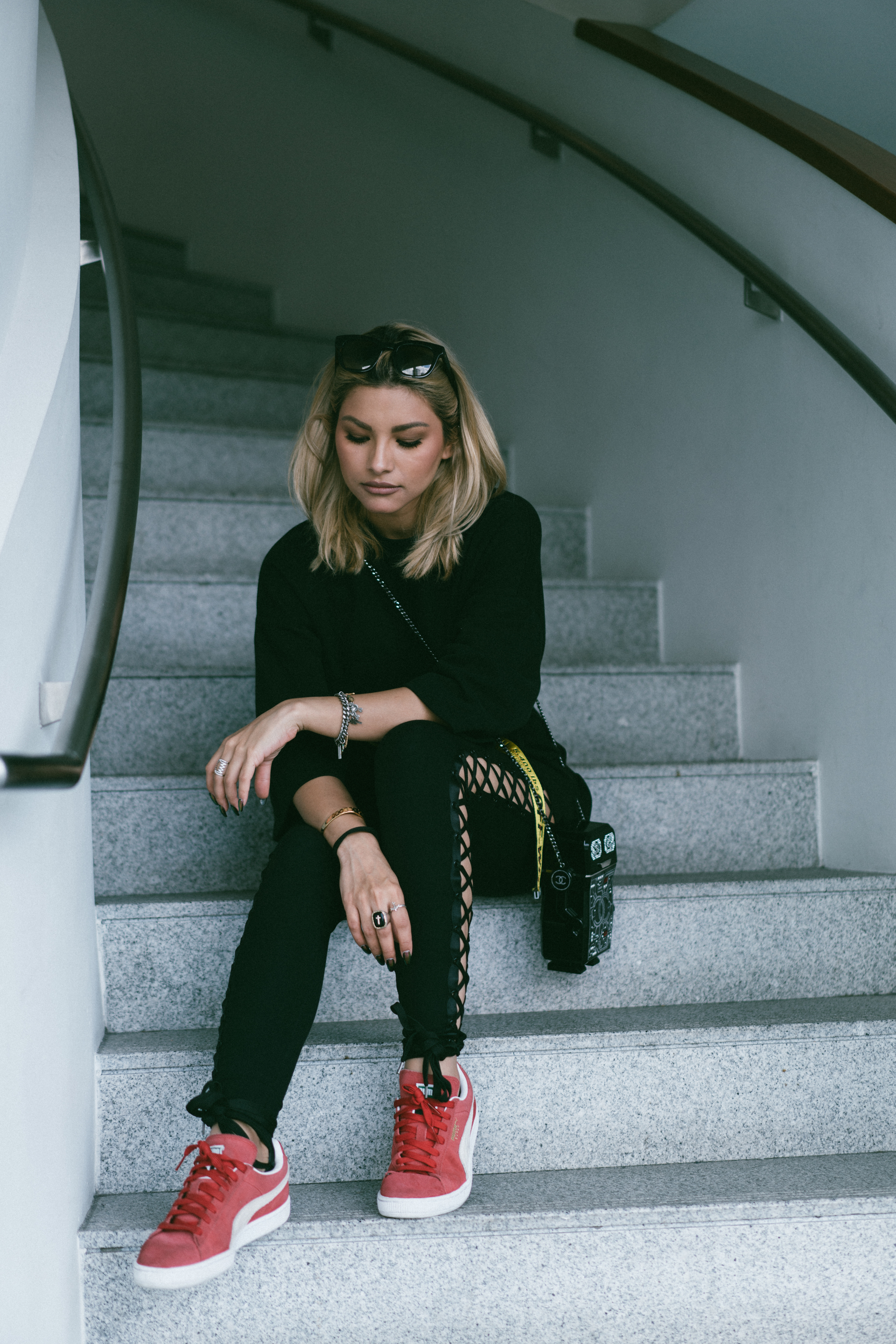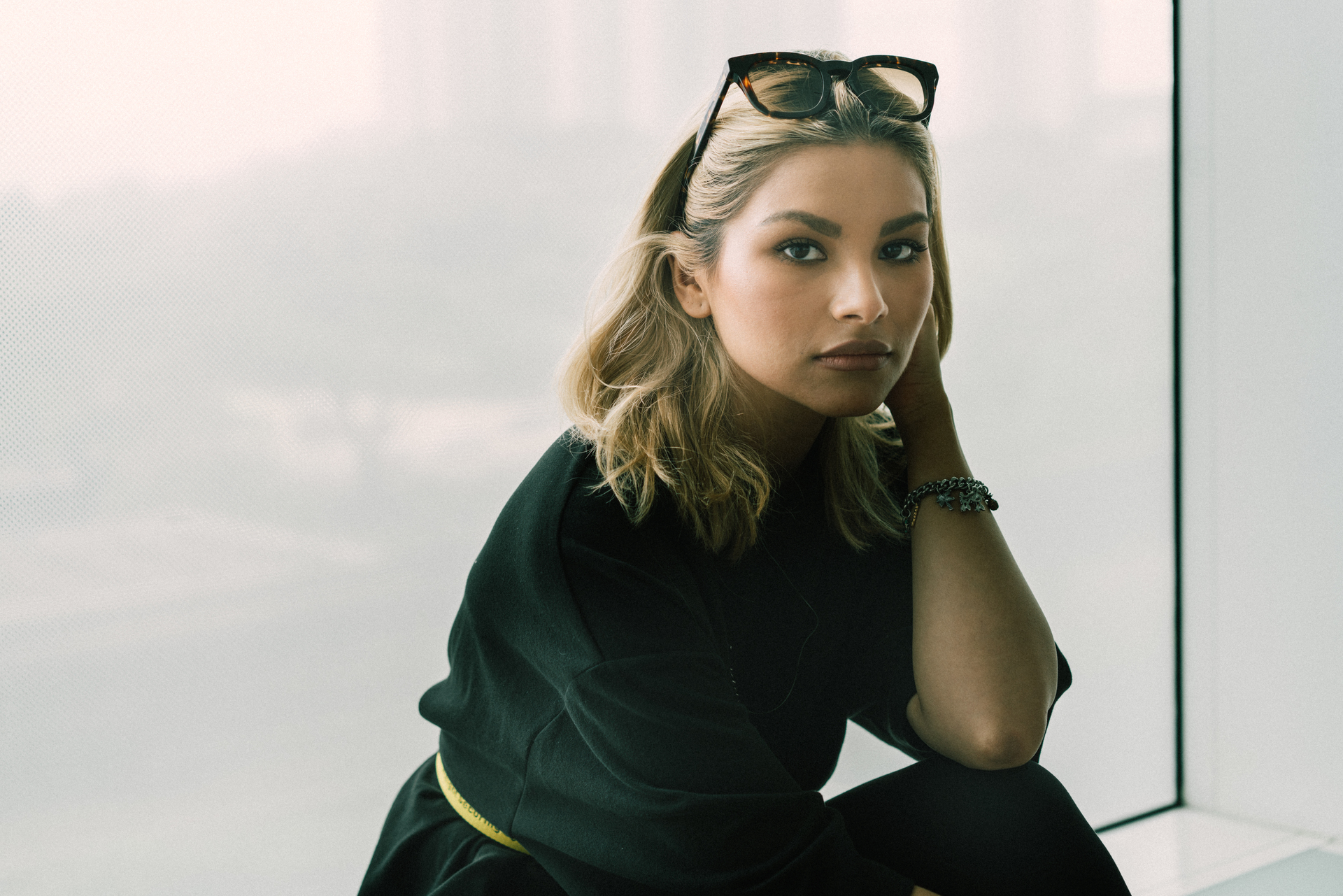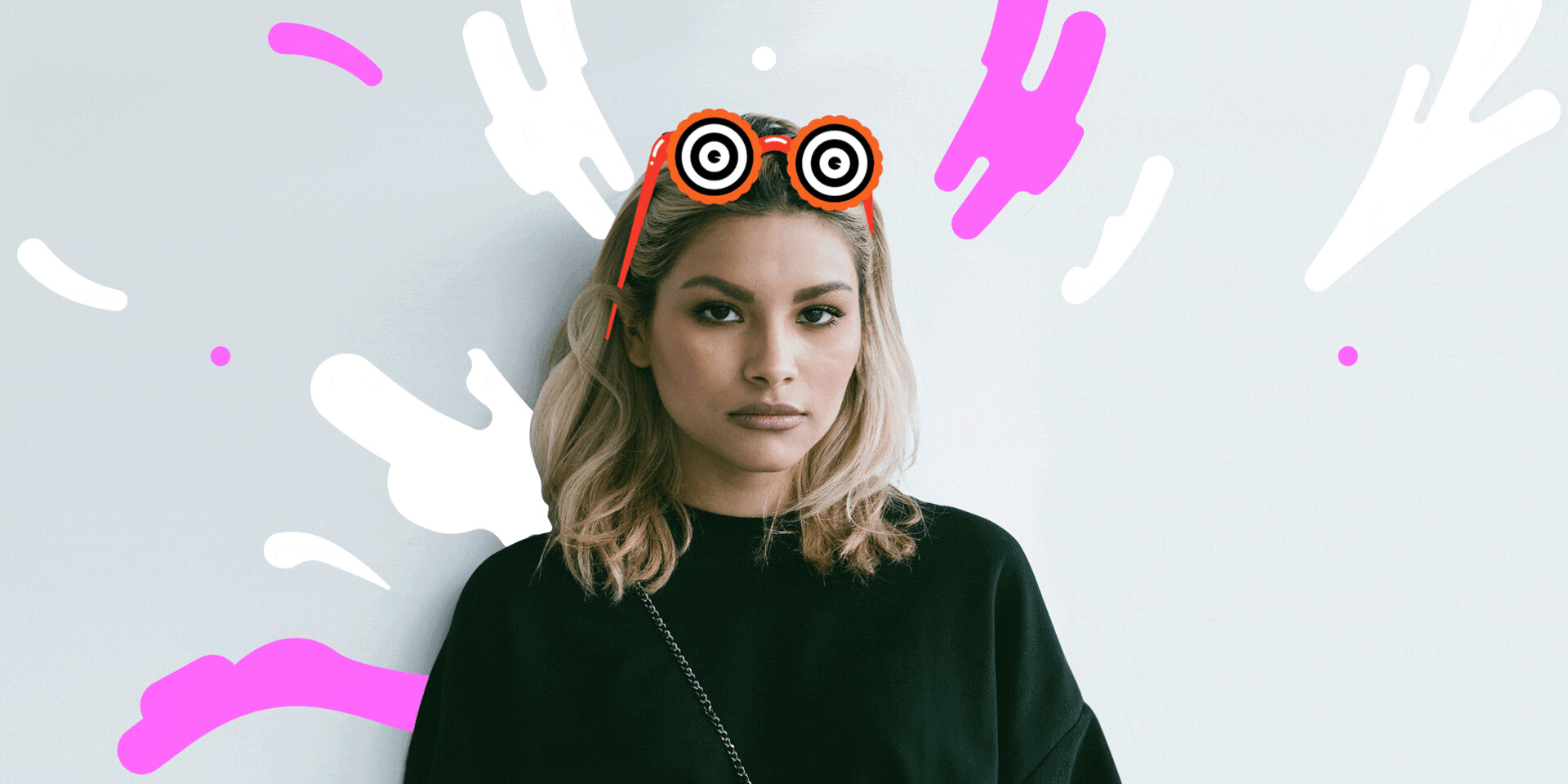The crowd is clamouring.
The host welcomes the viewer to the programme as overly-dramatic Idol music play over the sequence.
Strobe lights of some ironic vacuity shift and splatter in a nervous meander, as contestants are cued for their turn to deliver a two-minute performance that would hopefully enable them to move ahead in the competition.
In a grueling cut-throat reality TV show, the likes of which to produce either a form of regional attention or a lasting type of fickle Internet stardom, it’s tough to go out on there when the pressure is at a deafening volume — even more so when you’re just 17.
I think I was about 11 years old when I first heard my interview subject sing.
In the end, the obsession with reality TV singing competitions did not quite flounder — instead, it has evolved in the past decade to more palatable and permissible formats and doses.
She went deep and far in the competition with her powerful, mezzo-soprano voice — from impressing with Etta James’ 'At Last' in her audition to a technically superb version of Fergie’s 'Big Girls Don’t Cry', receiving acclaim from the judges and adoration from newfound fans nationwide.
Her run ended with a strong finish in third — but in the next eight years, she’d mature and graduate away from the experience, expanding out from a music career to theatre, radio and even as a fashion icon.
In the ensuing years, she’d sing on the 2010 Youth Olympic Games track as part of a group — with the likes of Sean Kingston and Australia’s Jessica Mauboy — win 987FM’s Radio Star 2013, becoming a full-time presenter on the station, and dabble in theatre acting with TheatreWorks’ National Broadcasting Company and Pangdemonium’s RENT.
I had just, in a sense, entered the “industry” and I had people telling me how I should behave, what I should say, or how I should dress all the time."
At 25, Tabitha Nauser is carving her own path.
Tabitha Nauser sings 'Unbreakable' as part of Lush 99.5FM x Rdio's 50 Songs in 50 Days initiative in 2015.
Recounting her experience, Nauser opened up: “I poke fun at it all the time, but it wasn’t that bad. I was still a little young at the time and had just, in a sense, entered the “industry” and people were telling me how I should behave, what I should say, and how I should dress all the time.”
We meet in a popular bakery cafe on a brisk April afternoon. The sweltering sun carves minor patches of sweat through the polyester and cotton of formal shirts. It’s lunch hour. Office folks are chattering. Plates and glasses are clanging.
She’s dressed in a thick raven black sweater — emblematic of the streetwear fashion she adores — with her medium blonde hair flowing through her shoulders. The makeup classy and warm — accentuating her strong brows, rounded up by fierce eye shadow and impeccable complexion, exuding the confident and sharp qualities she’d like to be passed on to the music.
Of Swiss-Indian heritage, she grew up in Woodlands and went through neighbourhood schools in Singapore, and on most summer breaks would return to Switzerland to be with her family.
“At 16/17, I was still figuring myself out and I had to do it live on television every week, you know?" she says. "It made me grow a thick skin fast, because I realized there’s really no pleasing everybody and that people can be mean, just cause."
She reminds me that she holds no bitterness towards that time — with nothing but fond memories from that experience. More importantly, it also gave her an insight into how the industry worked at the time.

At 16/17, I was still figuring myself out and I had to do it live on television every week, you know? It made me grow a thick skin fast, because I realized there’s really no pleasing everybody.”
Eight years on, and the 25-year-old has debuted with a confident single, a wavering anthem that balances pop confidence with shades of immersive R&B imagination.
The track begins with some pounding bass clouts, mixed with some reverb-soaked “hand-snaps” as Tabitha bellows out “Driving down this road doing something bad / Every time I think we’re through, you pull me back".
Taking one’s time is an essential philosophy to Tabitha’s creation process. The music needed to be a projection of her 100% finished, end-goal representation of herself. Patient reinventions would pay off for artists in recent times like Solange and Sampha — the reward for grounded tenacity and conceptual artistry that establish a personality while resonating with the current times.
Tabitha Nauser's Bulletproof official music video.
“People always ask me, why don’t you put something out? [My response] would be that it was important for me to go through these experiences and do more things and learn more about music before I put out something that I can call mine,” claims the former 987FM presenter.
If it’s anything to go by, the song has succeeded in its own right, garnering almost 500,000 streams on Spotify and numerous choreographed dance covers on YouTube indebted to it — projecting the type of instantaneous danceable appeal she had envisioned.
“I want my music to make people feel confident and sexy, and get up and dance when they listen to it!" she tells me. "'Bulletproof' is a good starter for that. Now we just gotta keep building from there.”
Defining what she liked from different musical styles and artists was a central part of a practical “music education”, and would serve to be a chart-coursing aspect in her career.
When speaking of influences, her eyes immediately lit up when it came to the subject of Kanye. Ranking his discography turned down to be an impossible task as she mulled over the importance of his first three albums, which bridged the gap between his old and new school sensibilities and his groundbreaking 2008 album, 808s & Heartbreaks, which she deemed as “ahead of its time”.
“I love what he’s doing. He’s not afraid to think outside the box,” she explains. “He does whatever he wants to do, which is what I love about Kanye. Like you tell him no and he’s probably gonna shove it in your face, ten times more than before. And, for some reason, it works for him.”

I’ve always known that ultimately, I was going to go back to music. That was always part of the plan.”
At Mediacorp’s 987FM (now rebranded as 987*), Tabitha took the afternoon slot, filling in from noon to four in the afternoon at its old spacious studio in Caldecott Broadcast Centre. The media giant has since moved to its monolithic headquarters at one-north.
She hosted a hip-hop segment where the likes of more commercial hip-hop would be played: DJ Khaled, Desiigner, Jay-Z — before this she’d mention Bryson Tiller as a strong influence during the recording of her upcoming EP. Her slot on the station allowed her considerable freedom with the songs she played, but it also continued her influence as a personality with younger crowds who missed out on the Idol train.
There was an instinctive need to balance out artistic and commercial obligations — to make your music universally enjoyed, and understanding how to cater to pop target markets as a sustainable force.
“I’ve always known that ultimately, I was going to go back to music," she states. "That was always part of the plan."
When the opportunity presented itself to join the radio station, she “jumped for it”, knowing that the working experience that comes with being a radio DJ would give her “some sort of insight on what was considered commercial music and commercial success.”
“My time there was very informative," she says. "Would I say I have it all figured out? No, because there is no formula. But at the end of the day, I know for a fact that I’m going to create the kind of music I want and love. If a number one hit happens, then great. But that’s not the be all and end all.”
She, however, notes the shift towards a newfound predilection for something more artistic and conceptual amongst commercial releases from less passive audiences, the types of which like Beyonce’s Lemonade or Kendrick’s DAMN. having success on all fronts.
“I think it’s because, in a way, we need to keep audiences interested," she explains. "We’ve always gotta try to make the music new and understanding. I feel like having art as a part of the music helps in that. Beyonce’s Lemonade, for instance, was just mindblowing. Everything down to direction and to the smallest details like wardrobe helped with a complete telling of the song and story.”
With the last track ‘Formation’ focusing on female & black empowerment, she’s mindful of the need for it to be a part of the music and for it to play out. “It’s not just about the music anymore, I feel. It’s beyond that.”
Being level-headed and having a broad creative perspective are part of Tabitha’s natural attributes, already preparing for the next step.

...at the end of the day, I know for a fact that I’m going to create the kind of music I want and love. If a number one hit happens, then great. But that’s not the be all and end all.”
“I’m definitely really excited to direct my next music video," she declares. "I really wanna be able to do it. It might happen for the second single, it might happen for the third. I won’t rush into it. I do have a lot of different ideas for what I want.”
The learning experience from ‘Bulletproof’ has given her the foresight in planning for her directorial debut.
“I wanted to ease myself into the process, and see for myself how everything is put together.”
On the topic of music videos, we converse about music videos that are pushing boundaries, with Beyonce’s Lemonade film and Kendrick’s visually stunning 'HUMBLE.', before a return to Kanye as we remember his cinematic approach for his 2010 ballad opus 'Runaway'.
“My favorite music videos are the ones with the simplest ideas,” she explains. “Someone like Erykah Badu, she followed a straightforward concept for ‘Window Seat’ but it was the execution that allowed the video to work the way it did — she’s just walking down the street after alighting a taxi, slowly removing a piece of clothing in public and lip-synching to the song."
"With every revealing layer, she unearthed more to us than she could with an extravagant video in a studio. Such a simply-executed video, with a powerful message.”
Erykah Badu’s 'Window Seat'
The music video for ‘Window Seat’ proved to be one of Erykah Badu’s high points creatively, with a resonant message condemning police brutality and advocating for unity amidst racial tensions. “It’s so simple,” Tabitha muses, “and it’s just done so well because she gives the space to illustrate different stories of the people around her.”
While this music video has been a source of inspiration, it’s also a stark reminder of the creative challenges behind the conceptualization process. “I keep asking myself, “What can I do that’s been done, but better?”” she says.
This extends to every facet of Tabitha’s ongoing music career, which took an interesting turn when she was selected to perform at a White House after party alongside Singaporean rapper ShiGGa Shay.
“The entire experience was different, compared to a show in Singapore,” she explains. “You’re not performing to people who already know your music, or already know you. They don’t know you at all when you go up there. They just know you’re a singer from Singapore — these are people in suits; delegates, politicians, even Joe Biden. You don’t know what kind of music they are into, but you’re kinda hoping that they’re into “your” music.”


Tabitha still remains in awe and disbelief about that star-studded, lavish night.
“The fact that we were even chosen to represent Singapore is crazy to me," she recounts. “We were brought into this massive, gorgeous and almost too bright room and I remember Shigga and I freaking out a little over being separated as we didn’t know anybody from that place.”
She recounts ending up sitting between a press lady and a representative from Nike.
It was a little bittersweet that known hip-hop head Obama wasn’t in attendance for the afterparty, but she tells me that they did end up seeing US Vice-President Joe Biden walking past.
And what was served on the menu? A main course of wagyu beef with sides of roasted yams, kale and heirloom carrots with a Maryland blue crab and calamansi curd following the servings.

[You have to] believe in what you are doing before anyone’s gonna believe in what you do. It’s about self-confidence, self-love."
Never has Tabitha been more focused and determined — now a signee of Sony Music Singapore, this new trajectory has also given her a new sense of empowerment.
"If you’re a woman, people are always trying to tell you what you can or cannot do, which is bullshit," she states. "You can literally do whatever the fuck you want to do. Wear whatever the fuck you want to wear. At the same time, it’s about being confident, right? [You have to] believe in what you are doing before anyone’s gonna believe in what you do. It’s about self-confidence, self-love."
Her experience with Idol and 987 began at the cusp of social media's smothering grasp on a young generation, and she empathizes with girls who are growing up with its pervasive influence. "If I was a teenager growing up now, it would be so freaking hard with Instagram and all these things," she says.
"Imagine if you’re a young woman and you’re still trying to figure out who you are as a person, and then you get bombarded with all these 'Instagram girls'. For sure you’ll be a little bit insecure, right? Because I would be, if I was growing up [now]."
Assembling her influences — from the assertive strength of Beyonce and Erykah Badu to the artistic integrity of Kanye West — it's easy to point out that Tabitha is already aspiring for pop greatness. But her ambitions draw a simpler conclusion, one that characterizes the Tabitha Nauser of 2017: one of freedom.
As she ventures beyond 'Bulletproof' and 987 to prepare her debut EP, due for release later this year — "I have a really good feeling about it. I’m hoping everything aligns" — the looming shadow of Idol has since become a distant memory. The pop landscape will continue to evolve and Tabitha strides on.
While 'Bulletproof' is far from career-defining work, it's merely the beginning of a woman coming into her own.
Special thanks to Sony Music Singapore for setting up the interview.
Like what you read? Show our writer some love!
-
